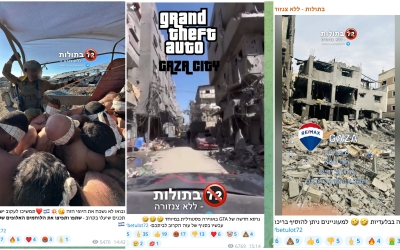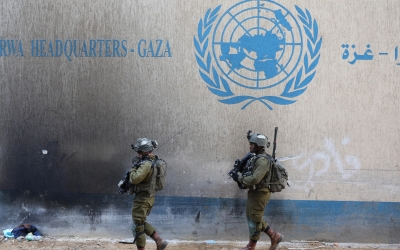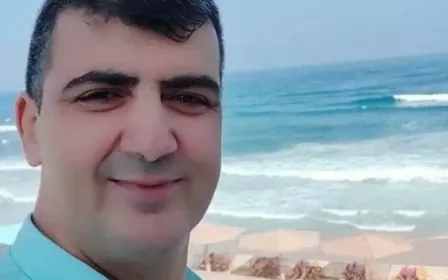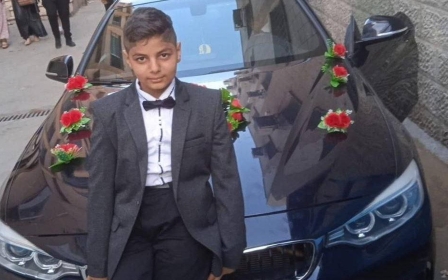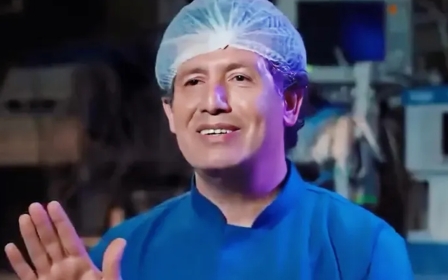War on Gaza: Al-Shifa hospital director released from Israeli detention
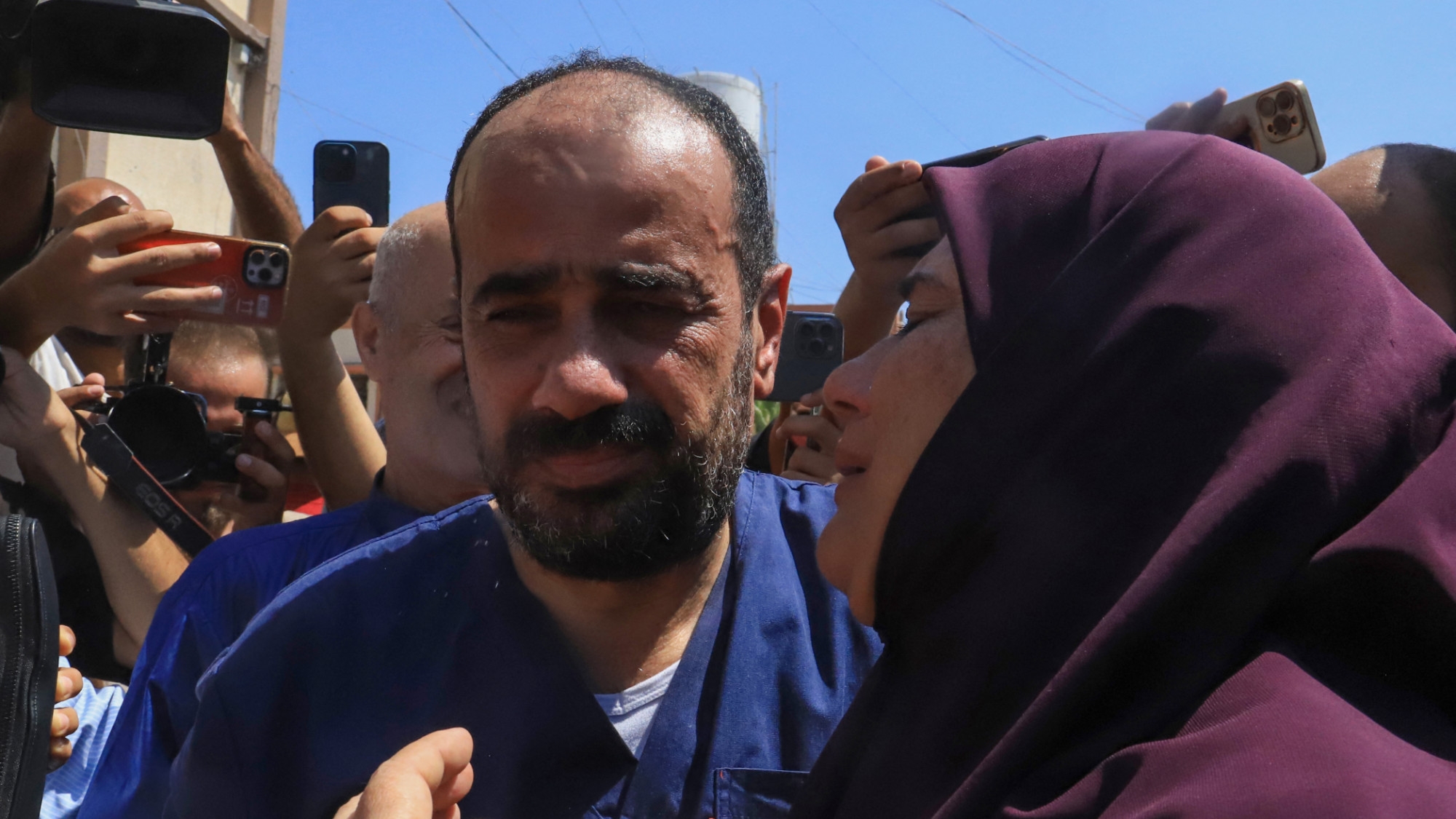
The Palestinian director of Gaza City’s al-Shifa hospital was released on Monday morning after months in Israeli detention.
Dr Muhammad Abu Salmiya was detained in November while in a UN-led humanitarian convoy evacuating patients who had been forced out of al-Shifa hospital during an Israeli military raid.
He was released back to Deir al-Balah in central Gaza with around 50 other detainees, including at least one other doctor.
Upon his release, he said Palestinian prisoners are suffering unprecedentedly harsh conditions in Israeli jails, not seen since the 1948 Nakba, and urgent action must be taken to free them.
Prisoners are subjected to all forms of torture while being deprived of their most basic rights, he said at a press conformance.
New MEE newsletter: Jerusalem Dispatch
Sign up to get the latest insights and analysis on Israel-Palestine, alongside Turkey Unpacked and other MEE newsletters
Many have died during interrogations due to torture, lack of medical care and food, he added.
"Even the Israeli doctors there [in jails] treat prisoners with cruelty and beat them... This occupation has abandoned all human values."
Abu Salmiya refused to leave al-Shifa hospital during the first Israeli raid in November, vowing to stay with patients.
However, all medical staff, patients and displaced people were forced out of the hospital after Israeli troops raided it.
Abu Salmiya said he was then detained with other doctors and patients while evacuating in a convoy coordinated by the UN with the Israeli military.
He said he had been in contact with Israeli officers before the evacuation to inform them of their movement, but the soldiers "betrayed" them and arrested him and others in the so-called "humanitarian corridor".
Israeli forces have released Doctor Muhammad Abu Salmiya, director of the Al-Shifa Medical Complex, who was arrested on November 23 during the first invasion of the hospital. pic.twitter.com/t73joXHeDR
— Middle East Eye (@MiddleEastEye) July 1, 2024
The Israeli military for months said al-Shifa hospital, the largest and most important medical facility in Gaza before the war, was a Hamas command and control centre.
After Abu Salmiya's arrest, the military claimed "there was extensive Hamas terrorist activity" in the hospital under his management.
However, Israeli authorities never presented any evidence to support its claim that al-Shifa hospital contained any Hamas assets.
This is despite attacking it several times, including an extensive two-week raid in March that destroyed the hospital’s facilities.
'I promise you and the world that we will rebuild [al-Shifa hospital]'
- Dr Muhammad Abu Salmiya, al-Shifa hospital director
The Palestinian health ministry, Abu Salmiya and Hamas repeatedly denied claims that Gaza’s hospitals were used for military purposes by any Palestinian armed group.
Abu Salmiya said on Monday that he was presented to a court three times during his detention but was never formally accused of anything. He said that this and his release proved that he was detained for "political" reasons only.
"I will return to perform my duty," Abu Salmiya said in his press conference.
"I heard from my colleagues that al-Shifa hospital suffered a lot of damage. I promise you and the world that we will rebuild this medical complex."
Anger and incitement in Israel
Abu Salmiya’s release has sparked angry reactions in Israel where many politicians are inciting against him.
According to Walla news, ministers expressed rage at his release in a WhatsApp group chat.
“Why is this man, in whose hospital hostages were murdered and a Hamas command centre operated, being released?” said Amichai Chikli, diaspora affairs minister.
Orit Strock, settlements minister, replied: “It is unthinkable to do such a thing without a cabinet meeting. I’m seriously asking, under what authority [was this done]?”
Israeli National Security Minister Itamar Ben Gvir said on X the release was the result of “security negligence”. In leaked private conversations reported on Israeli media, he called for the dismissal of Ronen Bar, the director of Shin Bet, Israel's internal intelligence agency.
The father of a slain Israeli captive, Noa Marciano, who was killed by Israeli air strikes according to Hamas, accused Abu Salmiya of being "indirectly responsible for her murder" as he criticised the government for his release.
Benny Gantz, an opposition leader and a former war cabinet member, often described as a "moderate" figure, said Abu Salmiya's release was "a moral and ethical operational error" by the government.
The office of Prime Minister Benjamin Netanyahu said the release came after a petition filed to the high court against the detention of prisoners at the notorious Sde Teiman detention facility.
He said he ordered an immediate investigation, adding that the identity of the released prisoners is "determined independently by the security officials based on their professional considerations".
Defence Minister Yoav Gallant issued a similar statement distancing himself from the release.
"The procedure for incarcerating security prisoners and their release is under the Shin Bet and the Israel Prison Service, and is not subject to the approval of the defence minister," his office said.
The Shin Bet hit back at criticism it received, saying the release of 55 people on Monday came due to lack of space in prisons and the need to make room for "more significant terror suspects".
In a statement, it blamed government officials, including National Security Minister Itamar Ben Gvir, for failing to address an "incarceration crisis" caused by the lack of prison space.
"For lack of any other option, without an immediate solution to the prison space crisis, arrests will continue to be cancelled and detainees will continue to be released," the agency added.
The Israel Prison Service (IPS), which is under Ben Gvir's purview, responded by saying Abu Salmiya's release was approved by the military and the Shin Bet and was not due to an "incarceration crisis".
In a rare move, it published the release order, which was signed by a brigadier general in reserves.
"IPS will will continue to act as a dignified organization, and will not be dragged into any discourse whose purpose is mutual slander," it added in a statement.
Abu Salmiya said he was surprised by the Israeli reactions.
He told reporters his release followed a formal legal process during which he was not found guilty of anything.
Doctors tortured to death
Israeli forces have arrested thousands of Palestinians from the occupied West Bank and Gaza since the 7 October Hamas-led attack on Israel and the subsequent war.
Between 4,000 and 5,000 are estimated to have been detained by invading Israeli forces from Gaza alone, including women, children, the elderly, paramedics, journalists, doctors and aid workers.
Israeli authorities have been accused of widespread and systematic torture and abuse of Palestinian detainees and prisoners.
This has led to the death of around 60 Palestinians in Israeli custody, at least 40 of them from the Gaza Strip, according to a tally by Middle East Eye based on media reports.
Roughly 1,500 have been released, and many have described the ill-treatment they endured.
This has included being sexually abused, electrocuted, beaten, attacked by dogs, deprived of food and sleep, humiliated and kept in degrading positions, urinated on, and handcuffed tightly for prolonged periods, causing severe injuries that led to amputation in some cases.
Survivors say doctors have been singled out with more cruel treatment than others.
At least two doctors, Adnan al-Bursh and Iyad al-Rantisi, have died under these conditions.
Abu Salmiya confirmed the reports after his release on Monday.
"We were subjected to severe torture," he said. "Occupation force stormed the prisoners’ cells and assaulted them on an almost daily basis."
At some point, prisoners were given one loaf of bread a day for two consecutive months, he added.
He urged international humanitarian organisations to visit Palestinian prisoners and called for every effort to be made to free them.
In May, the UN Special Rapporteur on Torture Alice Jill Edwards said there was an “emerging pattern of violations coupled with an absence of accountability and transparency” by Israeli authorities regarding allegations of torture and mistreatment of Palestinian detainees.
Edwards expressed concern that this was “creating a permissive environment for further abusive and humiliating treatment of Palestinians”.
Middle East Eye delivers independent and unrivalled coverage and analysis of the Middle East, North Africa and beyond. To learn more about republishing this content and the associated fees, please fill out this form. More about MEE can be found here.


